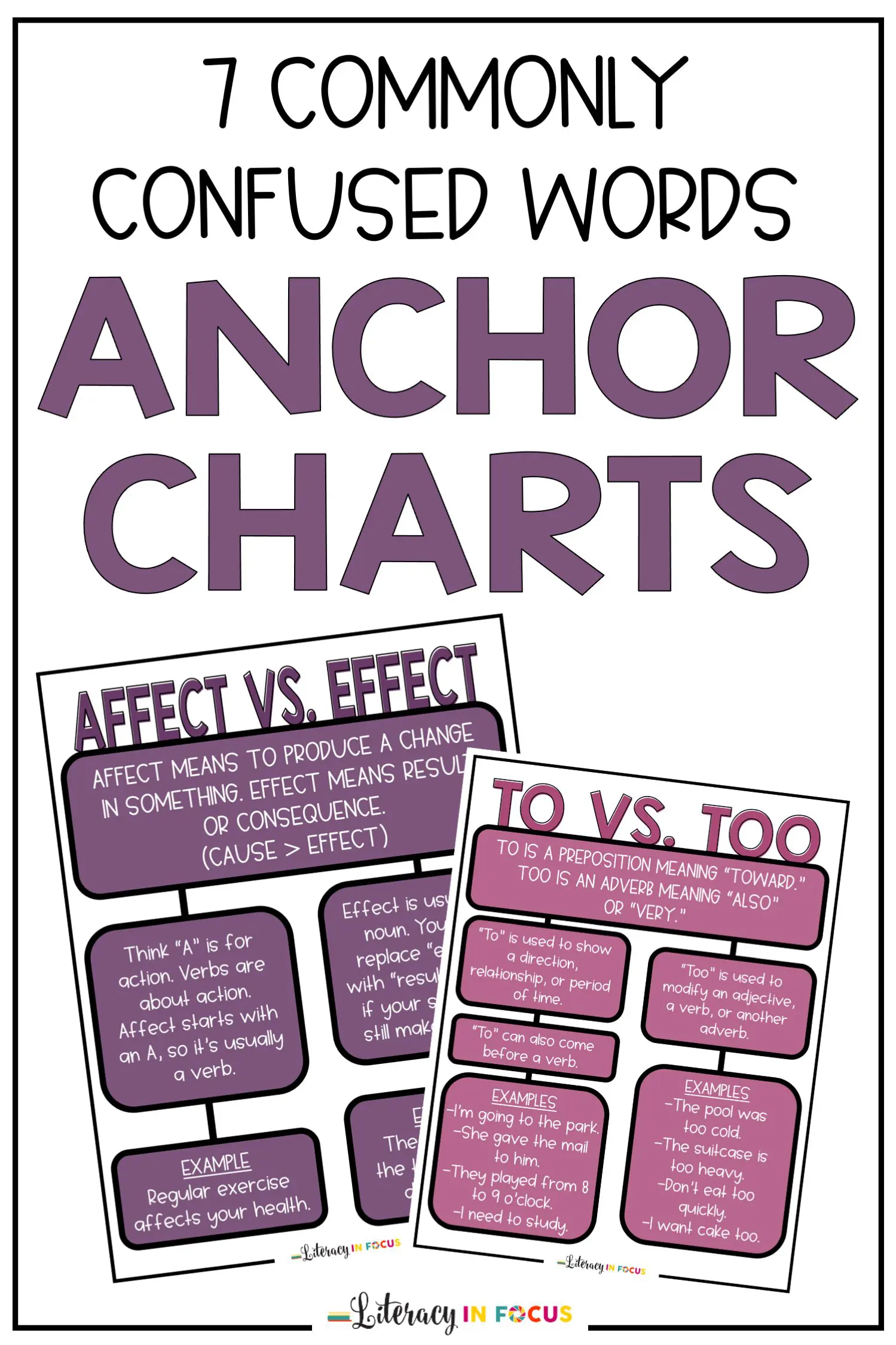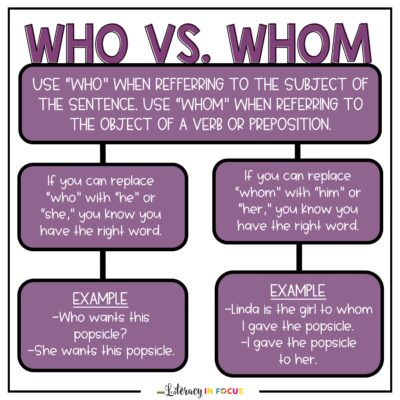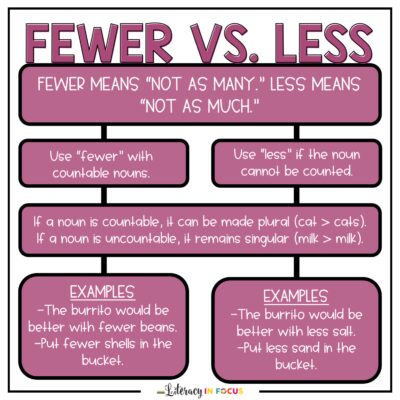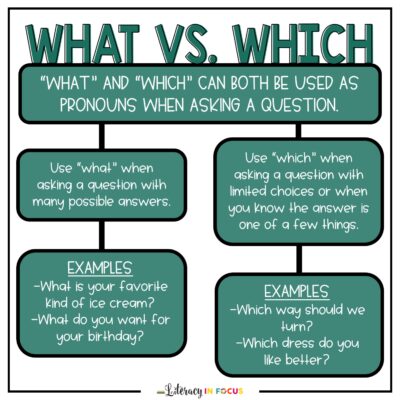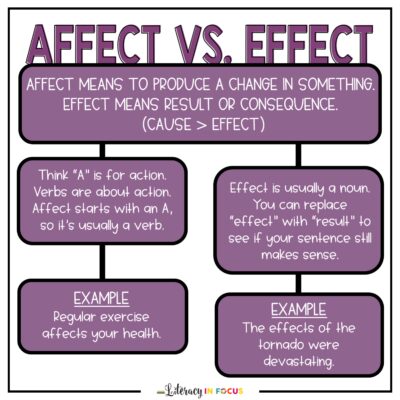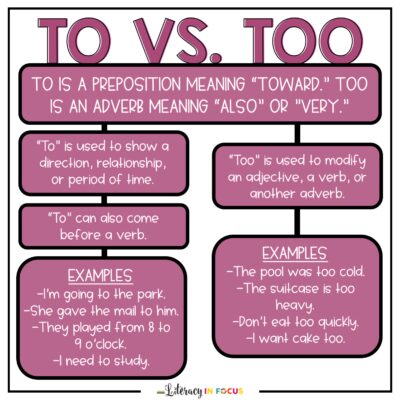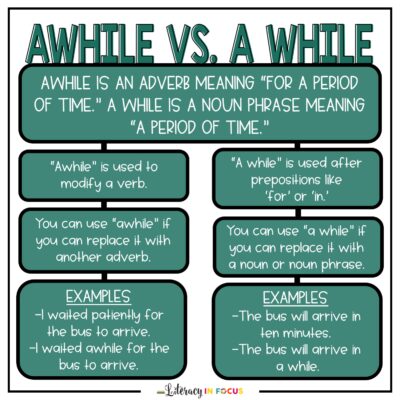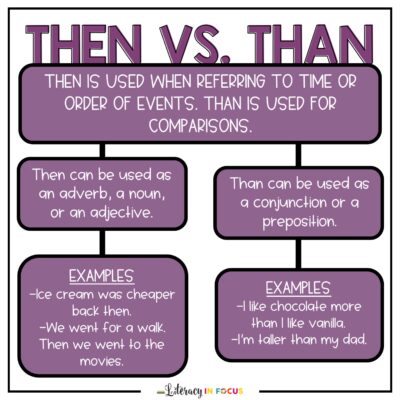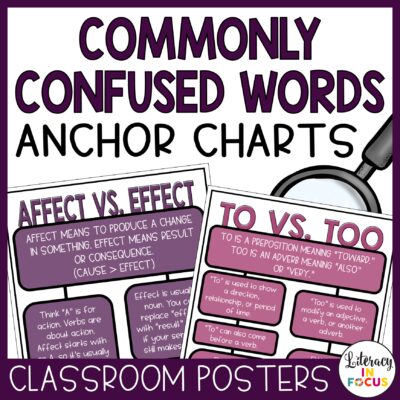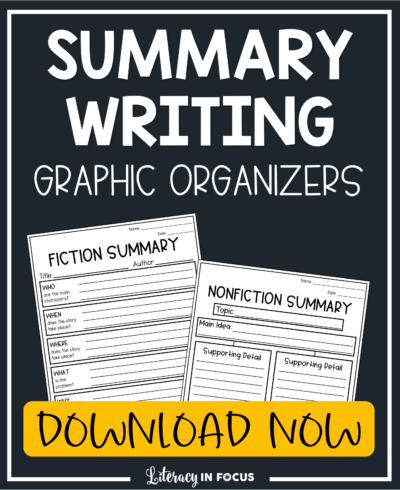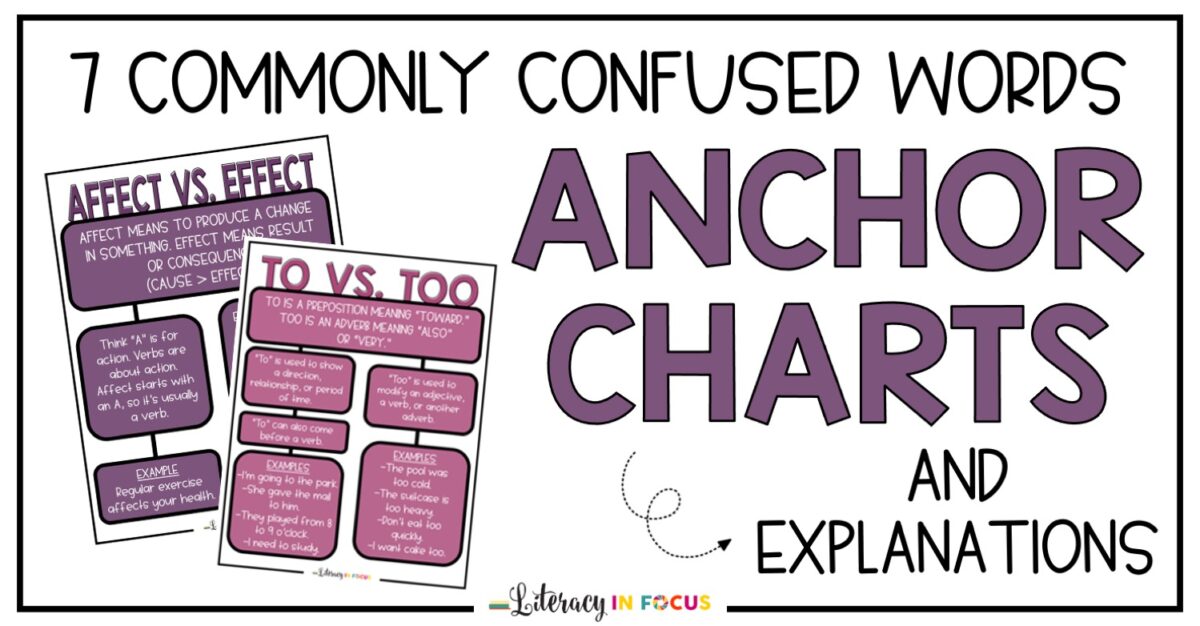
7 Commonly Confused Word Pairs
The English language is filled with words that look and sound alike. This can cause frustration and confusion for students of all ages. The list below includes seven pairs of commonly confused words. Each word pair includes an example anchor chart and explanation you can use when discussing the differences with your students.
Who vs. Whom
The word “who” is used when referring to the subject of a sentence. If you can replace it with “he” or “she,” you know you have the right word.
- Who wants this popsicle? She wants the popsicle.
The word “whom” should be used when referring to the object of a verb or a preposition. If you can replace it with “him” or “her,” you know you have the right word. You may have to alter word order when using this trick.
- Linda is the girl to whom I gave the popsicle. I gave the popsicle to her.
- To whom should I give this popsicle? Should I give this popsicle to her?
Fewer vs. Less
Merriam-Webster explains the difference between fewer and less using this fun mnemonic: We all want fewer problems and less trouble.
The word “fewer” is used to refer to things that are counted, as in “fewer choices” and “fewer problems.”
- The burrito would be better with fewer beans.
- Put fewer shells in the bucket.
The word “less” is used to refer to things that are uncountable, as in “less time” and “less effort.”
- The burrito would be better with less salt.
- Put less sand in the bucket.
*If a noun is countable, it can be made plural (cat > cats). If a noun is uncountable, it remains singular (milk > milk).
What vs. Which
“What” and “which” can both be used as pronouns when asking a question.
Use “what” when asking a question with many possible answers.
- What is your favorite kind of ice cream?
- What do you want for your birthday?
Use “which” when asking a question with limited choices or when you know the answer is one of a few things.
- Which way should we turn?
- Which dress do you like better?
Affect vs. Effect
Affect means to produce a change in something. Think “A” is for action. Affect starts with an “A,” so it’s usually a verb.
- Regular exercise affects your health.
Effect means result or consequence, like cause > effect. Effect is usually a noun. You can replace “effect” with “result” to see if your sentence still makes sense.
- The effects of the tornado were devastating.
Click HERE to get the Commonly Confused Words Anchor Charts for your classroom!
To vs. Too
To is preposition meaning toward. It is used to show a direction, relationship, or period of time. It can also come before a verb.
- I’m going to the park.
- She gave the mail to him.
- They played from 8 to 9 o’clock.
- I need to study.
Too is an adverb meaning also or very. It is used to modify an adjective, a verb, or another adverb.
- The pool was too cold.
- The suitcase is too heavy.
- Don’t eat too quickly.
- I want cake too.
Awhile vs. A While
Awhile is an adverb meaning “for a period of time.” It is used to modify a verb. You can use “awhile” if you can replace it with another adverb.
- I waited patiently/awhile for the bus to arrive.
A while is a noun phrase meaning “a period of time.” A while is used after prepositions like “for” or “in.” You can use “a while” if you can replace it with a noun or a noun phrase.
- The bus will arrive in ten minutes/in a while.
Then vs. Than
Then is used when referring to time or order of events. It can serve as an adverb, a noun, or an adjective.
- Ice cream was cheaper back then.
- We went for a walk. Then we went to the movies.
Than is used for comparisons. It can serve as a conjunction or a preposition.
- I like chocolate more than I like vanilla.
- I’m taller than my dad.
